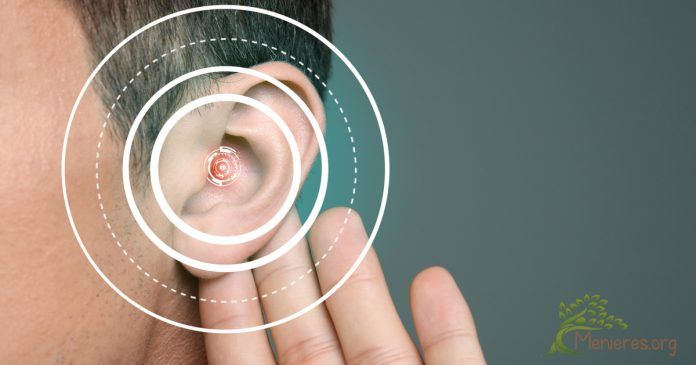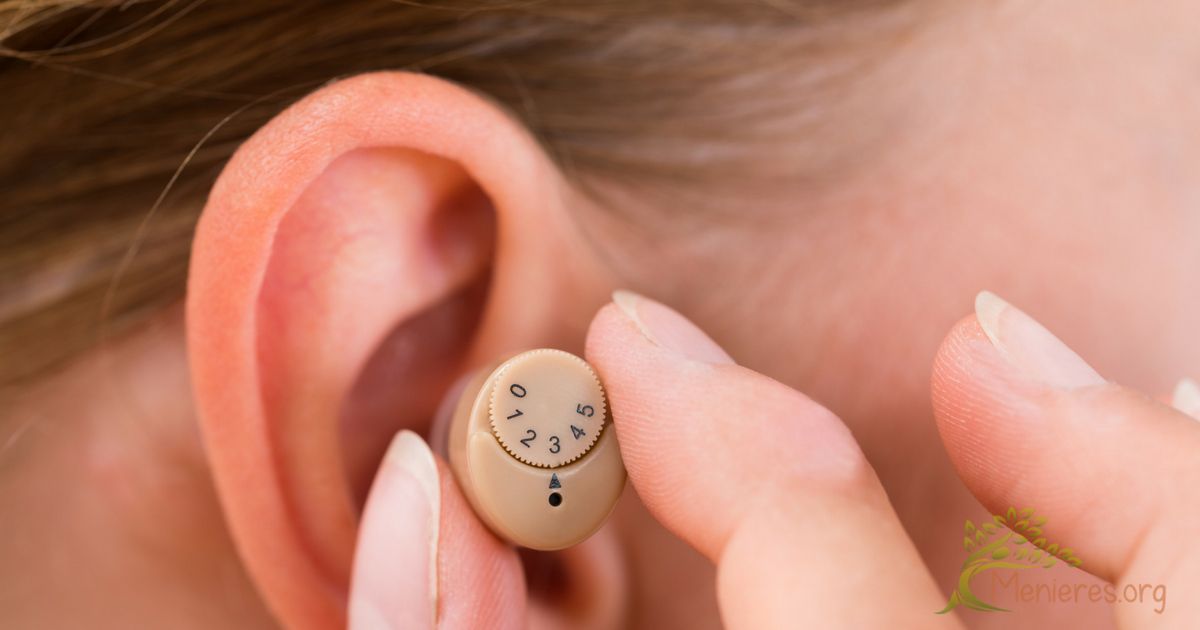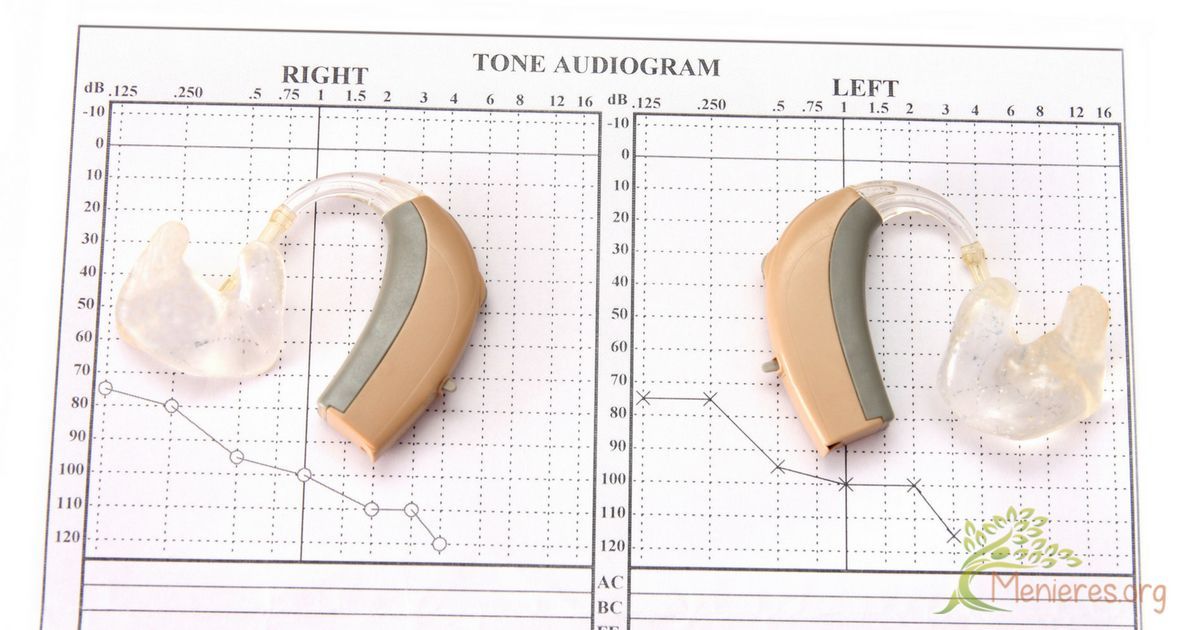
You may have never heard of Meniere’s Disease, but have heard about hearing loss in people of many ages. That’s not surprising since Meniere’s is an exceedingly rare condition. Most people won’t encounter another person with it in their lifetime. Meniere’s is also chronic, incurable, and has treatments that may or may not work for patients. This includes approaches for temporary or gradual increases in hearing loss.
Common Symptoms of Meniere’s Ear Disease

Meniere’s symptoms appear most often in people between the ages of 40 and 60, with a slightly higher occurrence in women. Meniere’s is an under-diagnosed condition because many of its symptoms are common to other physical ailments. A physician must rule out the other possibilities and look for a constellation of symptoms that manifest with Meniere’s.
Hearing Loss: Meniere’s patients may experience short-term hearing loss during an episode. They may also develop greater hearing loss over time that becomes permanent. Viral infections like shingles, long-term exposure to loud noise, head injury, and aging can also cause hearing loss.
Tinnitus: Some people with Meniere’s hear ringing in one ear (the one affected by hearing loss). This may sound like a musical note, buzzing, whirring, chirping or any other number of sounds that are typically constant. Other causes of tinnitus include aging, infections, ear injury, and long-term exposure to loud sounds.
Vertigo: This is the main sign of Meniere’s. A person experiences dizziness and a loss of balance for at least 20 minutes in an episode. An inner ear infection, stroke, change in blood pressure, anxiety, brain disorders, diet, and dehydration are vertigo triggers.
There are other Meniere’s symptoms too, but for now let’s focus on hearing loss, how it affects the patient and the potential of using a hearing aid for your Meniere’s hearing loss.
Progression of Hearing Loss for Meniere’s Patients

When you first receive a diagnosis of Meniere’s Disease, it was probably because you had experience with dizziness. In the early stages of this condition, you may not notice any hearing loss because it’s very subtle. At first, you lose some lower tones, and this occurs only in one of your two ears.
As time moves on, you may find you don’t experience vertigo as often. Your hearing loss increases, and you still have ringing in one ear that remains. Slowly, your vertigo symptoms may seem to disappear mostly. Unfortunately, the Tinnitus becomes louder along with the continued progression of your hearing loss. Since the initial decrease in sound reception occurs only in one ear, it can make you feel out-of-balance even when you are not experiencing a dizzy spell.
You may develop hearing loss (to some degree) in both ears at some point. This manifests around five years after diagnosis. The hearing loss isn’t equal in a bilateral sense either. The ear in which the hearing difficulties originates may get worse. Since we are accustomed to seeing people use hearing aids for similar problems not caused by Meniere’s, it makes sense to consider them as a potential helpmate.
The Impact of Meniere’s Hearing Loss on the Quality of Life

For Meniere’s patients, hearing loss is one of the most overlooked symptoms since most people complain about tinnitus far more. Hearing loss can turn your world upside down. If you have ever had a very stuffy ear, you know how sounds become distorted or garbled. Your ear cannot send clear signals to your brain. How that affects you depends on many puzzle pieces. For example, if you work in a noisy office you may have trouble with everyday conversations. If you like to go out with friends, even other people’s conversations can create a struggle. There are the “huh?” moments when you need people to repeat themselves for understanding.
Other effects of Meniere’s hearing loss include:
- Trouble determining from where a sound comes.
- Neck discomfort from turning your “good ear” toward sounds.
- Certain sounds seem louder than normal.
- Feeling unbalanced because of sound confusion.
- Ignoring (without the intent to do so) or misinterpreting what someone communicates on your “deaf side.”
Because of all the ways hearing loss impacts a person, some shy away from social situations, sports games, travel experiences, etc. They feel embarrassed or plain tired of having to explain the situation. This is not a healthy situation and one where your physician may suggest you explore a hearing aid with an ear-nose-and-throat doctor.
The Struggles of Finding the Right Hearing Aid

Audiologists know hearing aids help manage hearing loss, and for some people tinnitus as well. Unfortunately, the person with Meniere’s Disease is a little different. They require sophisticated “tuning” for their hearing aids, and the “tuning” must receive regular adjustments as hearing ranges change. For someone with Meniere’s Disease, the level of sound alters with changes in their inner ear – so on any day the hearing aid works, the next day, it may not.
Multi-memory Hearing Aids
Thanks to technology, there are now multi-memory hearing aids that may offset these daily hearing changes. These instruments have different settings that alter the hearing aid’s frequency, gain, and directional microphone for improved listening based on the situation. An audiologist can preprogram these settings that range from normal to auditorium, for example.
You may find that the normal setting is perfectly fine because this hearing aid adapts and adjusts to different situations from varying environmental sounds to speech. That means people with Meniere’s hearing loss can go from a busy café, take a walk in the woods, and return to the office without having to change any of their hearing aid’s settings.
Many audiologists program other memories into a person’s hearing aid that are selective. A person who enjoys music may have a “music memory” sound quality adjustment. A phone memory automatically improves what a person hears in that conversation, including conference calls. Restaurants and outdoor activities are two other memory settings which a user can have personalized.
Hearing aids like these vary, but some hold 14 frequency bands. Testing these with a Meniere’s patient provides the feedback for programming. Better still, some models allow the user to adjust their own settings, trying various ones until they find a comfort zone. This ability may help people with Meniere’s Disease identify sound triggers for their condition. It also provides them with a sense of control for a condition that’s changing constantly.
Summing It All Up: Meniere’s Help with Hearing Aid Use

Studies have shown that hearing aids can be extremely helpful for those with Meniere’s Disease providing your individual needs are taken into consideration. It is important to remain an active participant in audiological studies and talk to your physician about your specific auditory needs. Seventy percent of hearing aid users experienced a decrease in Meniere’s tinnitus with some reporting it seems to disappear while wearing their hearing aid. People also report that the hearing aid helps with balance issues not related to vertigo attacks.
There appears to be no reason you can’t consider this option. Talk to the person tracking your hearing loss. You may have to try different hearing aids, but the time is worthwhile if you can hear better throughout your day.



